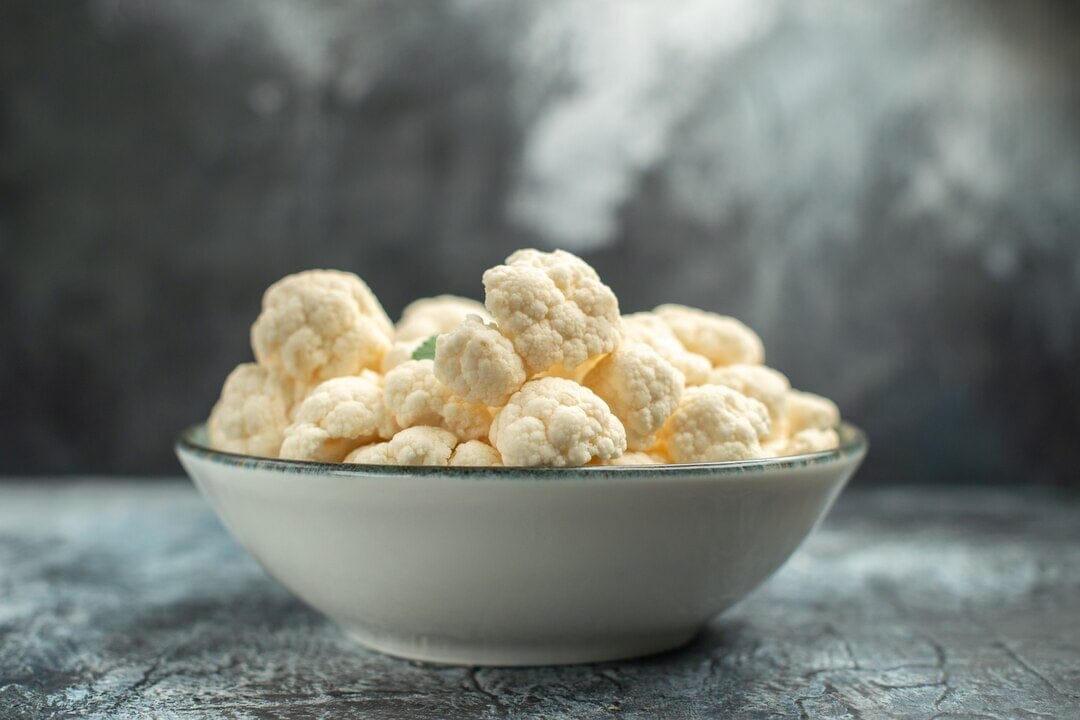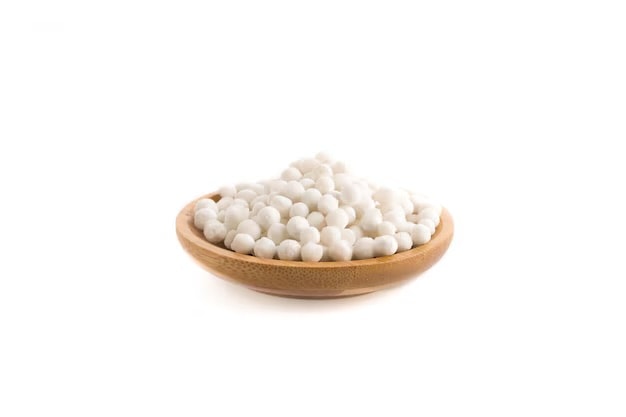
Makhana: Top Health Benefits, Nutritional Facts, and Delicious Recipes
Time to read 9 min
Time to read 9 min
Makhana, also known as fox nuts or lotus seeds, is fast gaining popularity as a superfood around the world. This small, white seed comes from the Euryale fox plant, which is a type of water lily.
Natives to India and parts of Asia, Makhana has been a part of traditional Indian cuisine and medicine for centuries, thanks to its impressive nutritional profile and numerous health benefits.
Let's explore the health benefits of makhana, its nutritional value, and some mouthwatering recipes to incorporate this versatile food into your diet.
Fox nuts are also called Makhana, which are seeds of the lotus plant. They are harvested from water and then roasted in order to enhance their taste and crunch.
It is a gluten-free, low-calorie snack that is both nutritious and delicious. Makhana is an excellent source of protein, fiber, and essential minerals such as calcium, magnesium, potassium, and phosphorus. Its high nutritional value and versatility make it a favorite among health-conscious people.
The nutritional value of makhana is impressive, thus it is a great addition to a balanced diet. For every 100 grams of makhana, the nutritional content is approximately:
• Calories: 350-400 kcal
• Protein: 10-15 grams
• Carbohydrates: 65-70 grams
• Fiber: 7-10 grams
• Fats: 1-2 grams
• Calcium: 60-70 mg
• Iron: 1-2 mg
• Magnesium: 50-60 mg
• Potassium: 400-500 mg
Makhana has minimal fats and is low in calories, thus an ideal snack for weight management.
The contents of makhana like protein and fiber support the different functions in the body and promote general well-being.
Makhana is low in calories and high in protein, thus an ideal snack for weight loss.
The protein and fiber within makhana keep a person feeling fuller for a longer time and decrease the urge to eat more on unhealthy foods.
Furthermore, it is a good source of complex carbohydrates, which give a person constant energy without spiking the blood sugar levels.
Makhana has low glycemic index, therefore is good for diabetic patients. It regulates blood sugar levels, releasing glucose into the blood at a slow rate.
The magnesium content in it helps improve insulin sensitivity so that glucose is metabolized in a better way.
Makhana is a good source of antioxidants, which is important for heart health.
It helps in reducing bad cholesterol (LDL) and increases good cholesterol (HDL).
Potassium content in makhana supports healthy blood pressure levels, reducing the risk of cardiovascular diseases.
The fiber content in makhana aids digestion by promoting regular bowel movements. It helps in flushing out toxins from the body, ensuring a healthy digestive system.
Makhana is an excellent source of calcium, which plays a vital role in the development of strong bones and teeth.
Regular consumption of makhana can prevent conditions such as osteoporosis and help improve bone density.
The antioxidants in makhana help combat oxidative stress, slowing down the aging process and promoting healthy, glowing skin.
In addition, the protein and essential minerals present in makhana help keep hair strong and shiny.
Makhana is a natural detoxifying agent that helps cleanse the body. It promotes kidney and liver functions by flushing out harmful toxins.
Fox nuts are a natural sedative and help improve the quality of sleep. The magnesium content in makhana calms the nervous system, thus helping those who suffer from insomnia.
While makhana is relatively safe to eat, excessive consumption can lead to some side effects. These include:
Overeating makhana causes constipation or bloating due to its high fiber content.
Some people may react to the product with allergic reactions, such as itching or skin rashes.
Eating roasted makhana with added salt, sugar, or spices in large quantities may lead to increased calorie consumption, counteracting weight loss goals.
It is recommended to be consumed in moderation as part of a balanced diet.
Makhana is a versatile food and can be prepared in multiple ways to suit different tastes.
It can be roasted, fried, or used in curries, desserts, and snacks. Here are some delicious and healthy recipes to try:
A classic snack, roasted makhana is crunchy, flavorful, and perfect for munching anytime.
• 1 cup makhana
• 1 tsp ghee or olive oil
• Salt and pepper to taste
• Optional spices: turmeric, paprika, or chaat masala
• Heat ghee in a pan and add makhana.
• Roast for 5-7 minutes until they become crispy.
• Add salt and spices of your choice. Mix well.
• Store in an airtight container for up to a week.
This creamy dessert is a delicious way to enjoy the health benefits of makhana.
• 1 cup makhana
• 4 cups milk (dairy or plant-based)
• 2 tbsp sugar or jaggery
• 1 tbsp ghee
• Cardamom powder, nuts, and raisins for garnish
• Heat ghee in a pan and roast makhana until crispy.
• Crush the roasted makhana slightly.
• In a separate pot, boil milk and add sugar or jaggery.
• Add crushed makhana to the milk and simmer for 10-15 minutes.
• Sprinkle with cardamom powder, nuts, and raisins before serving.
A perfect snack for work or travel.
• 1 cup roasted makhana
• 1/2 cup mixed nuts (almonds, cashews, peanuts)
• 1/4 cup dried fruits (raisins, cranberries)
• 1 tsp olive oil
• Spices: chili powder, cumin, or cinnamon
• Mix all ingredients in a bowl.
• Roast in a pan or bake in an oven for 10 minutes.
• Let it cool and store in a jar for later use.
Makhana is the perfect snack for those wanting to stay fit and healthy. It has low calories, high protein, and gluten-free content, making it ideal for those with dietary requirements.
Makhanas are also rich in antioxidants, which fight free radicals in the body. They have a low glycemic index, ensuring that the energy is released slowly without sudden sugar peaks, thus ideal for diabetics.
For weight watchers, makhana is a magic pill. It is low in calories but high in protein and fiber, which helps to manage weight.
If one replaces fried or sugar-coated snacks with roasted makhana, it will be possible to decrease the calorie intake overall without losing out on the taste. Makhana, if included in the diet, can help achieve the desired fitness.
The Fox nuts or lotus seeds popularly known as Makhana have solidified its place as a versatile, extremely healthy superfood.
Its increasing popularity has been well-deserved through impressive nutritional value and many health benefits.
Makhana is not just an ancient Indian snack but a food suitable for health-conscious modern lifestyles.
With the low-calorie profile of makhana that is gluten-free and packed with nutrients, it forms a great option for every individual in all age groups.
The nutritional value of makhana highlights why it is a must-have in your diet. With 100 grams of makhana offering a good balance of protein, fiber, carbohydrates, and essential minerals like calcium, magnesium, and potassium, it is an ideal food to meet the body's nutritional needs.
This nutrient composition makes makhana good for improving digestion, promoting bone health, and supporting heart health.
The low glycemic index coupled with its blood sugar regulating activity ensures it is helpful for those having diabetes or are looking at losing weight.
Makhana has high antioxidant levels as well, which make this a superfood. The antioxidants reduce oxidative stress within the body, boost immunity, and delay the aging process in human beings.
Furthermore, detoxifying the body through makhana helps remove all forms of toxins, ensuring there is healthy functioning of the livers and kidneys.
For those who want to shed fat, makhana with higher protein and fiber content and its extremely low calorie count turns to be an ideal snack without going for the taste quotient being compromised.
Makhana is more than just a nutritious food; it is extremely versatile. Whether it is roasted and consumed as a snack, added to kheer, or put into trail mixes, makhana can be used according to different tastes and preferences.
Its ability to blend into sweet and savory dishes makes it a valuable addition to any kitchen.
Being gluten-free and low in calories, makhana caters to the dietary restrictions of those who require it, ensuring everyone can enjoy its benefits.
However, while makhana is undoubtedly packed with health benefits, it is essential to consume it in moderation.
Overeating makhana may lead to side effects such as digestive discomfort or bloating due to its high fiber content. Moreover, combining makhana with excessive amounts of salt or sugar may negate some of its health benefits.
Keeping portion sizes in check—typically 30–50 grams a day—is key to reaping its advantages without experiencing unwanted effects.
The benefits of makhana are not limited to nutritional values. It has a long shelf life, is affordable, and easy to prepare, which makes it accessible and convenient for many households.
Including makhana in your daily routine can help support weight loss, improve heart health, stabilize blood sugar levels, and improve overall well-being.
In a nutshell, makhana is an ancient treasure that has been able to pass the test of time and evolve into the needs of modern diets.
Whether it is roasted makhana to munch on or used in traditional Indian dishes or as a low-calorie alternative to processed snacks, makhana is a delicious way to nourish your body.
Embrace makhana as a regular part of your diet to enjoy its myriad benefits and take a step closer to a healthier lifestyle.
Yes, makhana is excellent for weight loss. It is low in calories and high in protein and fiber, which helps keep you full for longer periods and reduces unnecessary snacking. A 100-gram serving of makhana provides about 10-15 grams of protein and 7-10 grams of fiber, which are important for promoting satiety and supporting digestion.
Makhana also contains a low glycemic index. This means that its energy is released slowly. Hence, it prevents sudden rises in blood sugar that triggers hunger pangs. This, along with low-fat content and high nutrient density, makes it a healthier option than unhealthy calorie-rich snacks. You can save those unwanted calories by opting for light spice-seasoned roasted makhana instead of your favourite fried or sugary snack.
For those seeking weight management, including makhana in your diet as a midday or evening snack is an easy and effective strategy. Moderation is important; don't exceed 30-50 grams per day to avoid overconsumption of calories and get the best result for weight loss and health.
Although makhana is very nutritious and safe for most people, excessive intake can cause some side effects. Consuming too much makhana, especially in large amounts, can bring about digestive problems such as constipation, bloating, or gas because it contains a lot of fiber. It is recommended to consume a lot of water in conjunction with makhana in order to help digest the food.
Some people may react to makhana as they are allergic to it, and it causes itching or rashes on the skin. For the first time consumers, start with a small amount to ensure you don't have any negative reactions. Flavored or spiced makhana has added salt or sugar that will negate some of the health benefits, especially for people who are managing blood pressure or diabetes.
* Medical Disclaimer - The following information is for educational purposes only. No information provided on this website, including text, graphic, and images, are intended as substitutes for professional medical advice. Please consult with your doctor about specific medical advice pertaining to your condition(s).






